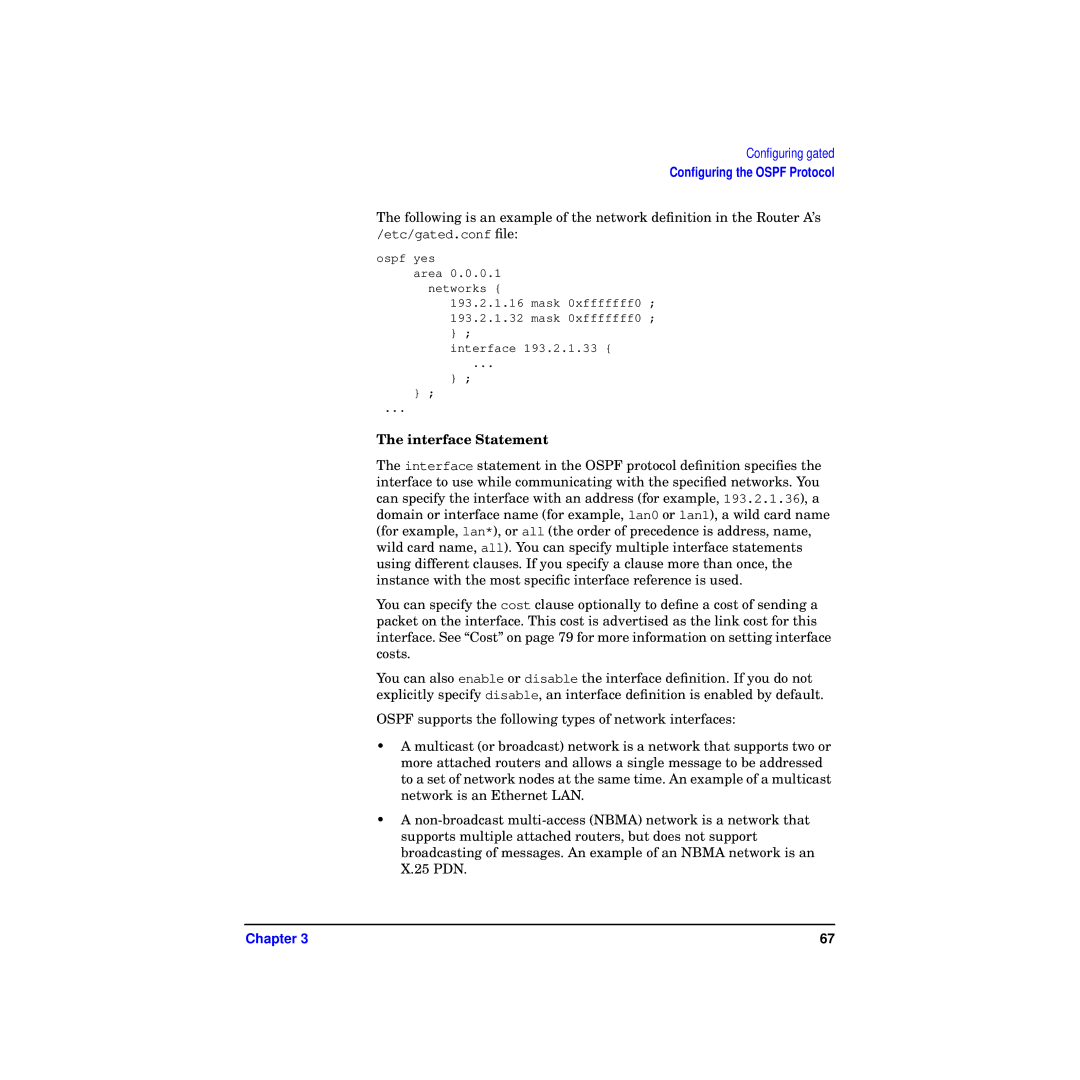Configuring gated
Configuring the OSPF Protocol
The following is an example of the network definition in the Router A’s /etc/gated.conf file:
ospf yes
area 0.0.0.1 networks {
193.2.1.16mask 0xfffffff0 ;
193.2.1.32mask 0xfffffff0 ;
} ;
interface 193.2.1.33 {
...
} ;
} ;
...
The interface Statement
The interface statement in the OSPF protocol definition specifies the interface to use while communicating with the specified networks. You can specify the interface with an address (for example, 193.2.1.36), a domain or interface name (for example, lan0 or lan1), a wild card name (for example, lan*), or all (the order of precedence is address, name, wild card name, all). You can specify multiple interface statements using different clauses. If you specify a clause more than once, the instance with the most specific interface reference is used.
You can specify the cost clause optionally to define a cost of sending a packet on the interface. This cost is advertised as the link cost for this interface. See “Cost” on page 79 for more information on setting interface costs.
You can also enable or disable the interface definition. If you do not explicitly specify disable, an interface definition is enabled by default.
OSPF supports the following types of network interfaces:
•A multicast (or broadcast) network is a network that supports two or more attached routers and allows a single message to be addressed to a set of network nodes at the same time. An example of a multicast network is an Ethernet LAN.
•A
Chapter 3 | 67 |
